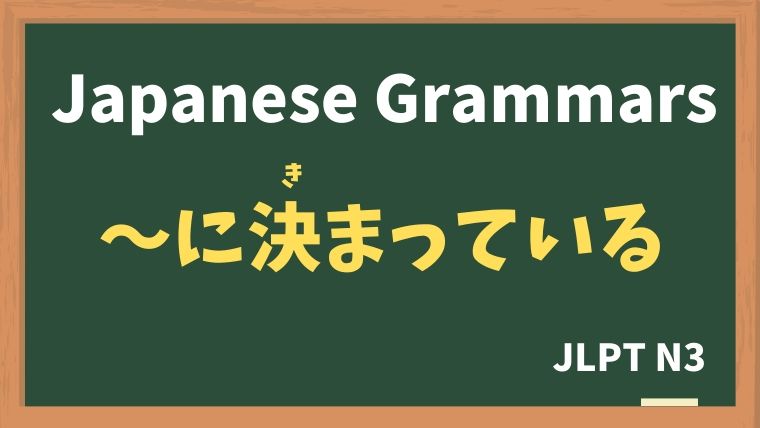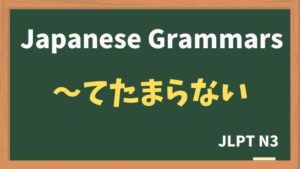
Explanation:〜に決まっている
fa-check-circleMeaning
"きっと〜だ / ぜったいに〜だ"
"definitely / has to be,"
Used to emphasize a strong belief or conviction that something is undoubtedly true. It conveys certainty or confidence in the statement being made, often implying that the conclusion is obvious
fa-check-circleForm
V(plain form)+ に決まっている
イA(plain form) + に決まっている
ナA (plain form)+ に決まっている ※ナAだ + に決まっている
N (plain form)+ に決まっている ※Nだ + に決まっている
fa-check-circlePoints
- Expresses Certainty: "〜に決まっている" is used to express a firm belief or strong conviction that something is true or will happen.
- Implies Obviousness: The expression often implies that the statement should be clear or obvious to the listener or speaker.
- Casual or Colloquial Usage: This phrase is frequently used in casual or conversational settings, expressing the speaker's confidence or strong opinion.
fa-check-circleJLPT Level
N3
Sample sentenes
毎日、カロリーが高いものばかり食べていたら、太るに決まっているよ。
It's obvious that you'll gain weight if you only eat high-calorie foods every day.
彼が言ったことは、うそに決まっているよ。
It's clear that what he said is a lie.
あのレストランには毎日、人がたくさん並んでいるから、きっとおいしいに決まっているよ。
That restaurant must be delicious because there's always a long line of people waiting to get in.
明日までに漢字を100個覚えるなんて、無理に決まっているよ。
It's impossible to memorize 100 kanji characters by tomorrow.
宿題は少ないほうがいいに決まっている。
It's definitely better to have less homework.
テストは簡単なほうがいいに決まっているよ。
It's obvious that it's better if the test is easy.
メールの返事は早いほうがいいに決まっている。
It's clear that it's better to reply to emails quickly.
Vocabulary
| Japanese | English |
| カロリー | calorie |
| 並ぶ(ならぶ) | to line up |
| 返事(へんじ) | reply |






